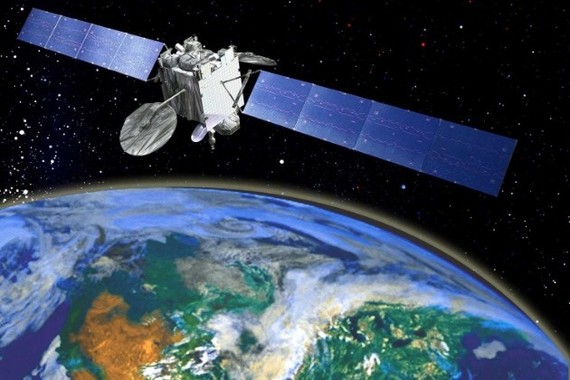The U.S. Government’s decision to end oversight of the International Corporation for Assigned Names and Numbers (ICANN) represents an opportunity for U.S. leadership creating global “e-government” systems to solve international law enforcement and terrorism problems, develop global education and environmental initiatives, and in turn, start using the Internet as a platform for advancing a new foreign-policy agenda.
For those who follow these rather arcane subjects, and more who should, on March 14 the National Telecommunications and Information Administration (NTIA), part of the U.S. Department of Commerce, announced its intent to end its oversight of ICANN, the California Corporation in charge of assigning all names and numbers–all the things that make up the worlds use of the internet–in favor of what it called a “multistakeholder model of Internet policymaking and governance.”
In making this announcement, Assistant Secretary of Commerce for Communications and Information Lawrence E. Strickling, said:
“The timing is right to start the transition process” … “We look forward to ICANN convening stakeholders across the global Internet community to craft an appropriate transition plan.”
Now, in the face of congressional opposition and misinformed media, the “administration is backpedaling” say some. Recently, l. Gordon Crovitz, writing in the Wall Street Journal, argued:
“Less than a month after announcing its plan to abandon U.S. protection of the open Internet in 2015, the White House has stepped back from the abyss. Following objections by Bill Clinton, a warning letter from 35 Republican senators, and critical congressional hearings, the administration now says the change won’t happen for years, if ever.”
The media generally have picked up the concerns of Congress, some corporations, and individual OPED’s galore arguing that the decision the Administration made could spell the end of the Internet, as we know it. This is nonsense, and the Obama Administration needs to continue its effort to create a truly “mulistakeholder model”.
While the U.S. created the Internet, it is today a truly global communications system unlike any previous technological marvel. Not the telegraph, the telephone, or the television has grown so fast or had the impact worldwide as has the Internet and its worldwide web. Neither any country nor any corporation or individual (terrorists excepted) will set out to harm the Internet on which we all depend. It is the one global communication system the world wants and needs.
For that reason, the U.N., and its sister agencies, the ITU, and UNESCO, want more to say about its growth and development and have long disputed America’s continued control over ICANN’s responsibilities. Why these International agencies argue should a system which every country in the world is now dependent, belong only to a little non-profit in Southern California under contract to the U.S. Commerce Department? Why indeed should the U.S. continue to hold the keys to the world’s future?
It is no secret that nation after nation are already imposing their own restrictions on use of the Internet, blocking access to sites they find offensive or, as the Voice of America recently reported, about Iran, planning their own “closed version of the Internet to keep its citizens from viewing material it considers unsuitable”.
More importantly, we have already won that future by creating a world communication system used by the world. Letting go of ICANN gives the U.S. momentum to more aggressively breath life into the thousand of applications, which more truly internationalize its usefulness’s to nations, and to the world community.
In the early 60’s, for example, President Kennedy created COMSAT to take advantage of our investment in space, and leverage of our prowess in satellite technology. Most nations in the world expressed outrage that only the U.S and the U.S.S.R. could spy on them or destroy them at will from their unique position in space. The U.S.S.R. started talking about “hunter killer satellites” to destroy the U.S.’s space efforts.
COMSAT, the U.S.’s chosen vehicle for deployment of satellite technology, as JKF envisioned, suddenly became not only became a vehicle for robust development of our own domestic communications system, but an instrument of global commerce and diplomacy. With the creation of Intelsat, a global consortium representing both government and private-sector interests around the world, America ushered in the first truly global communications system.
In many ways our investment in the Arpanet in the 70s for the Defense Department – the precursor of our modern-day Internet – offers similar opportunities. The Internet has already become America’s vehicle for creating a system of global “e-commerce” and has, in a few short years, ushered in a triumph for advocates of our capitalist system.
The “go-it-alone,” only America can govern the Internet may be appealing to our conservative and sadly, nationalistic instincts, such narrow thinking will not only weaken our technological lead, it will continue to undermine our basic freedoms in the world.
Read from Source

